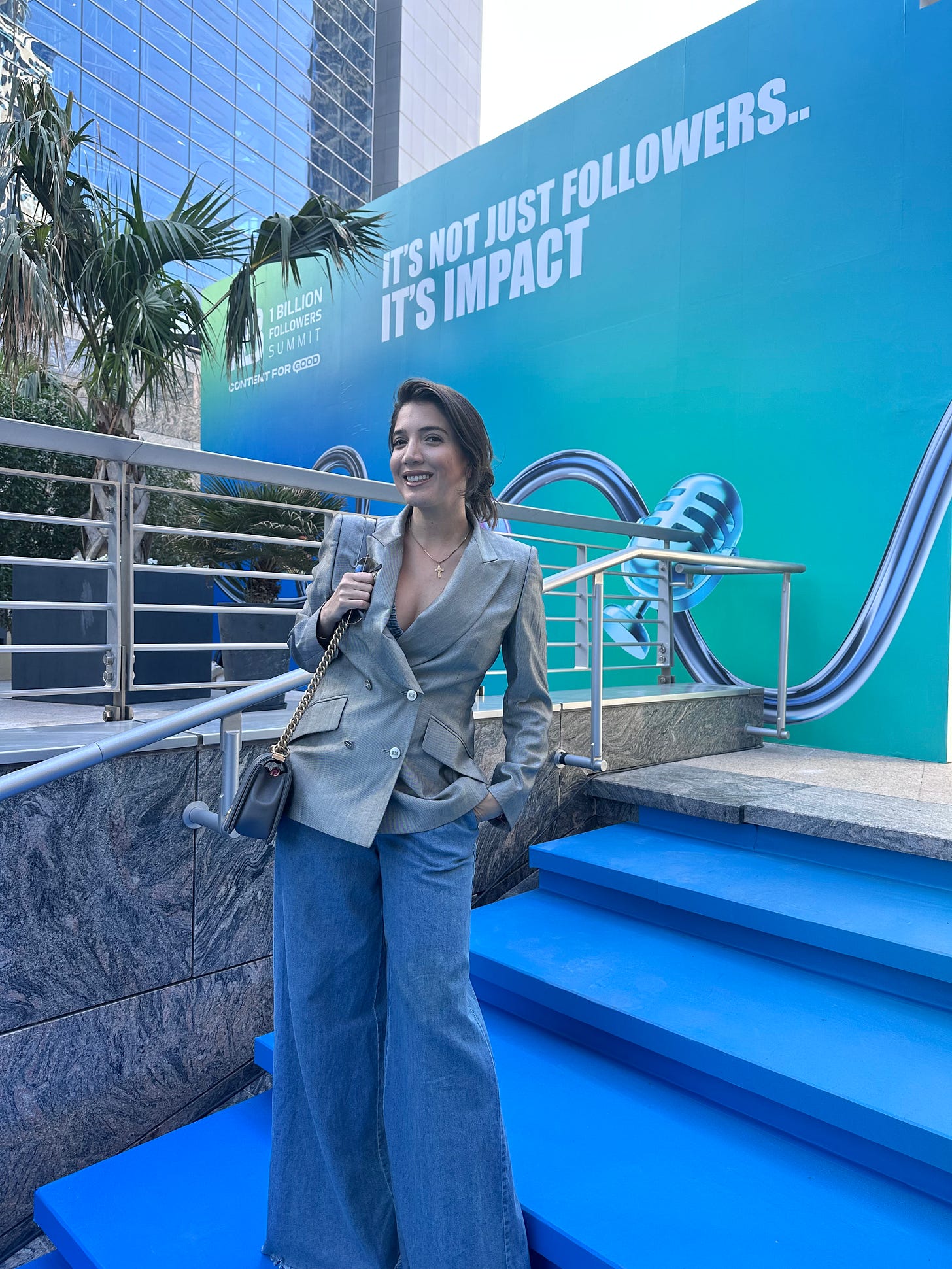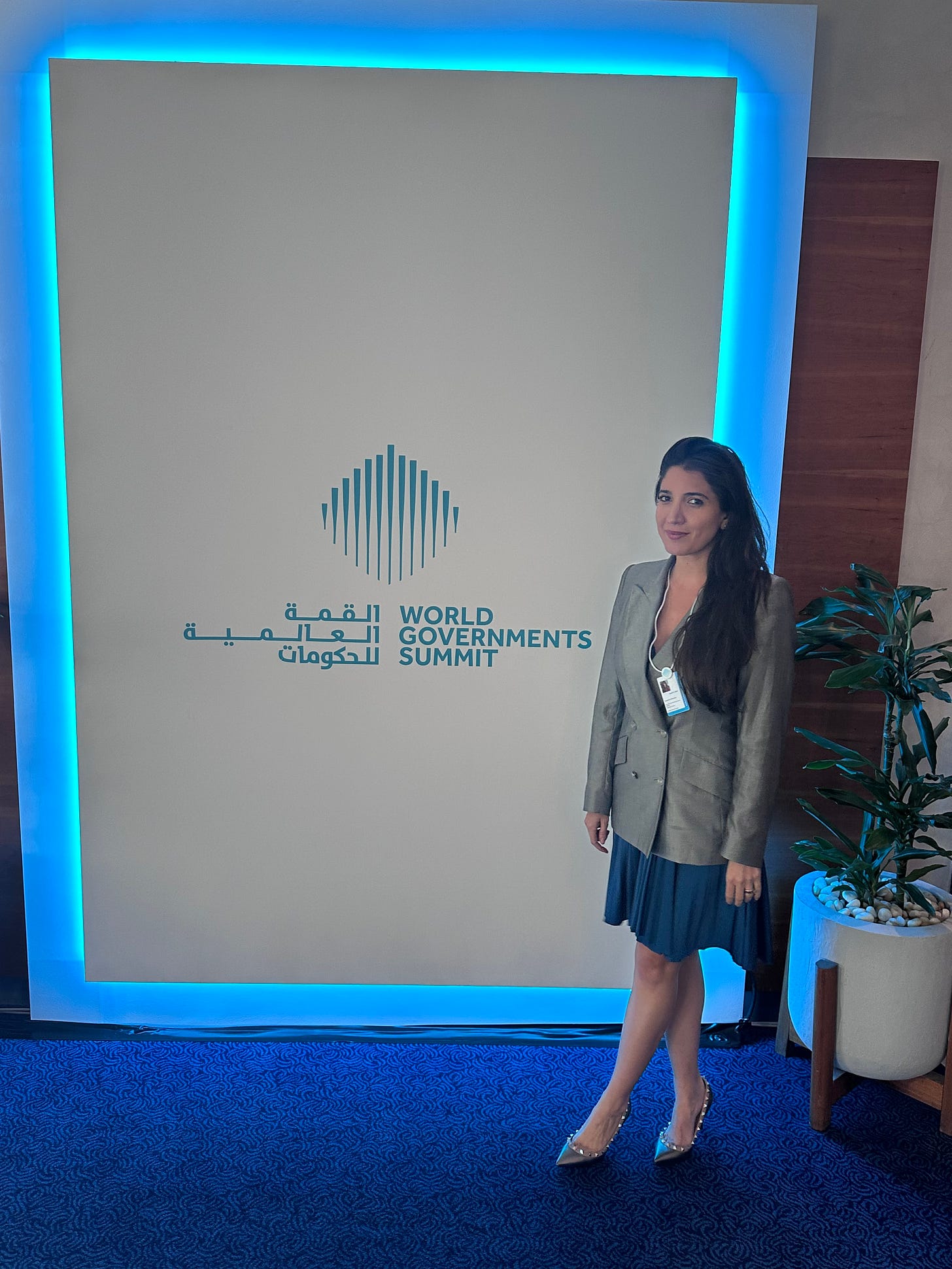The Gulf’s Media Transformation: Why the US and UK Should Pay Attention
How the Region's Media Evolution is Reshaping Global Influence
The Gulf’s traditionally reserved media landscape is undergoing a seismic shift. Global media giants are doubling down on their presence, regional legacy media is experiencing leadership shake-ups, and the influencer economy is being positioned as a major economic pillar. But what does this really mean for the future of journalism, digital content, and the business of media in the Gulf? More importantly, why should the US and UK care?
CNN and Reuters Expand in the Middle East
CNN is making a bold move by setting up a new operation in Media City Qatar, a hub designed to drive media and technology innovation. At the same time, Reuters is expanding its Middle East footprint, launching an Arabic-language platform and onboarding the Abu Dhabi Investment Office as a partner. These developments signal a growing appetite for high-quality journalism, but they also raise questions about sustainability—particularly when digital media struggles with monetization.
Why does this matter for the US and UK? Because the Middle East is a geopolitical and economic powerhouse, and controlling the media narrative in the region has global implications. As Qatar, the UAE, and Saudi Arabia ramp up media investments, their influence over international reporting grows, as seen in last year's prolonged and as yet unresolved row over UAE ownership of London's Daily Telegraph. For American and British policymakers, journalists, and business leaders, understanding this shift is essential to staying ahead of emerging power dynamics.
Legacy Media Shake-Ups and the Vogue Arabia Paradox
Closer to home, Gulf News has appointed a new editor, Khaleej Times has a new CEO, and Vogue Arabia is facing a reckoning. Dubai may be a luxury hub, but it is not a global fashion capital on par with Paris, Milan, New York, or London. This year’s Dubai Fashion Week was eerily quiet, highlighting that Vogue Arabia’s real function in the region isn’t about setting trends—it’s about monetizing them. Even Anna Wintour flew in to relaunch Vogue Arabia under Condé Nast, marking her first visit to the city and sitting down with one of Dubai’s most popular podcasters.
For UK and US audiences, this signals a shift in fashion diplomacy. British and American brands rely on Gulf markets for luxury consumption, but they also need to understand how regional narratives shape global perceptions. Who gets to decide what luxury looks like in a region rapidly investing in soft power?
The Billion Followers Summit: The Business of Influence
Dubai started the year with the Billion Followers Summit, marketed as the world’s largest creator gathering. The event was co-hosted by Moniify, a startup that launched last fall backed by Egyptian billionaire Naguib Sawiris and led by former Euronews CEO Michael Peters. The network spent significantly —only to be hit with mass layoffs a few months later.
For British and American journalists, media entrepreneurs, and influencers, this is a cautionary tale. The Gulf’s content creation economy is booming, but it’s also volatile. Platforms owned or backed by Gulf investors are increasingly shaping global conversations. If the US and UK don’t pay attention, they risk ceding influence to new digital power players operating beyond their traditional regulatory frameworks.
The Unspoken Struggles of the Influencer Economy
While Dubai is betting big on the creator economy, rolling out Golden Visas for content creators, there’s an untold story: many influencers are struggling. Even those flaunting Prada and Valentino on Instagram face declining income streams, as brands increasingly push collaborations over cash payments. Even influencers with half a million followers are staying silent, fearing that speaking out about the precarious nature of their business could jeopardize future deals.
Why should the US and UK care? Because the business of influence is no longer just happening on Western platforms. TikTok, Instagram, and YouTube remain dominant, but Dubai is positioning itself as a global influencer hub. If British and American brands want to understand where digital marketing is headed, they need to study Dubai’s strategy—before they find themselves playing catch-up.
Women Leading the Future of Media (But Not in the Gulf’s Boardrooms)
Despite all its innovation, Dubai still lags in accurately representing its diverse population—particularly in media leadership. At the World Government Summit, the media panel featured four men and just one woman—a glaring misalignment with who is actually driving media transformation. The biggest disruptors today aren’t legacy institutions; they are women like Jessica Sibley, CEO of Time Magazine, who is redefining digital storytelling and leading AI’s integration into newsrooms. She’s not alone—Julia Beizer, Chief Digital Officer at Bloomberg, and Emily Bell, director of Columbia’s Tow Center for Digital Journalism, and AP Executive Editor Julie Pace have long shaped the conversation on tech’s role in media evolution
Why should this matter in the US and UK? Because media leadership is still overwhelmingly male-dominated in both countries. The same gender disparities playing out in the Gulf are reflected in newsrooms in London and Washington. If women are the driving force behind digital content creation, why aren’t they leading the charge in media boardrooms? This isn’t just a Gulf problem—it’s a global one.
Where Do We Go From Here?
The Gulf’s media industry is evolving rapidly, but the path ahead is uncertain. The model of high-profile convenings, influencer partnerships, and government-backed media initiatives needs to be interrogated. Can these ventures create sustainable revenue streams? Will the region’s media industry truly embrace innovation, or will it remain dependent on external players? The US and UK should care because the way media, influence, and power evolve in this region will have ripple effects across industries. Whether you work in media, business, or policy—or simply want to understand the forces shaping our world—this is a conversation worth having.




